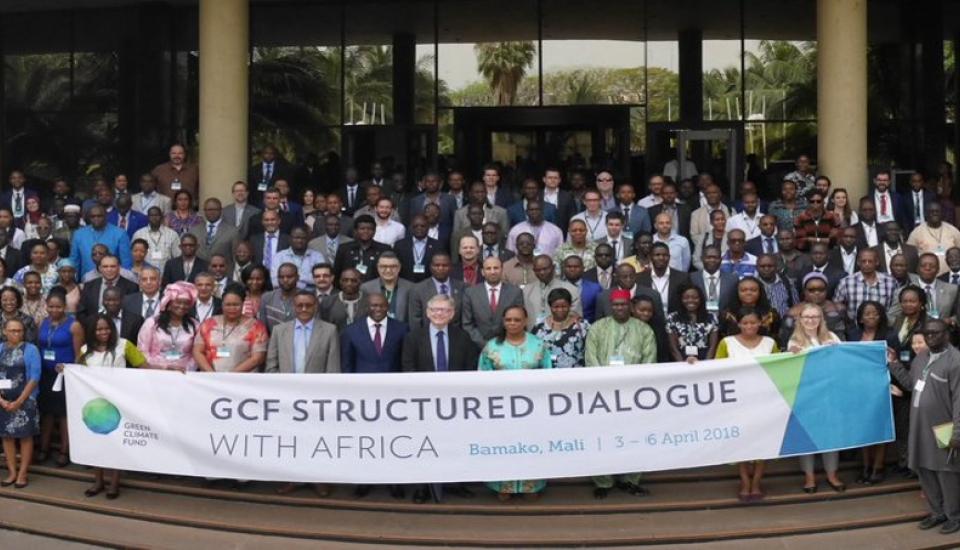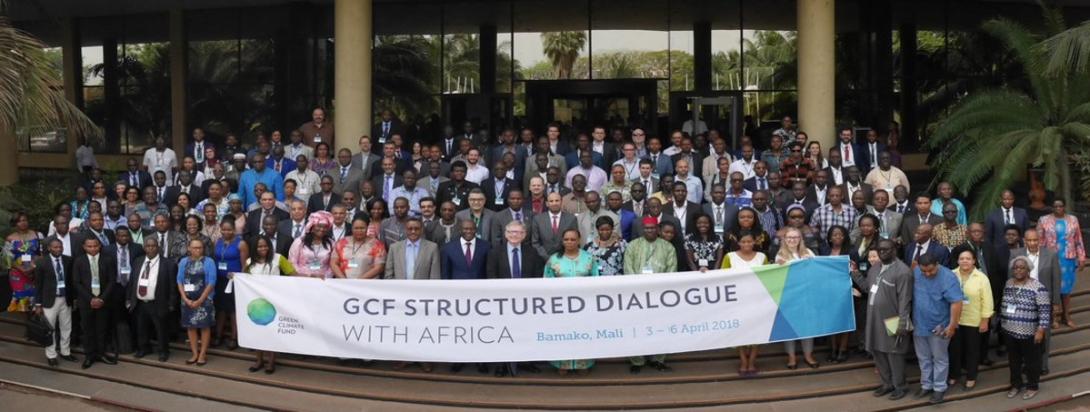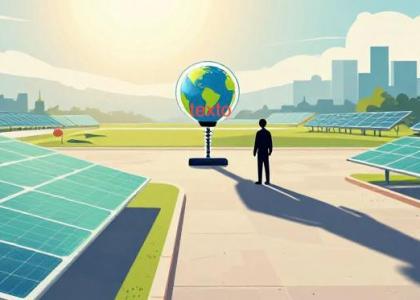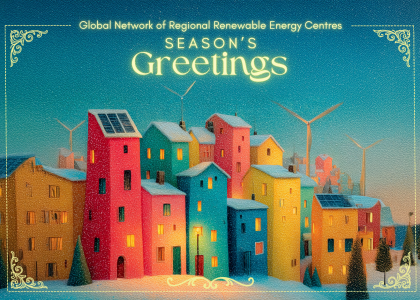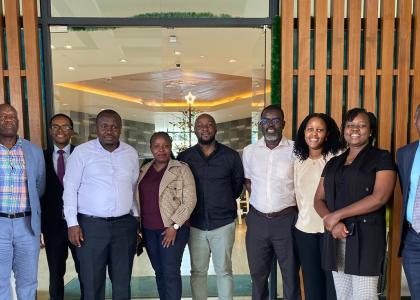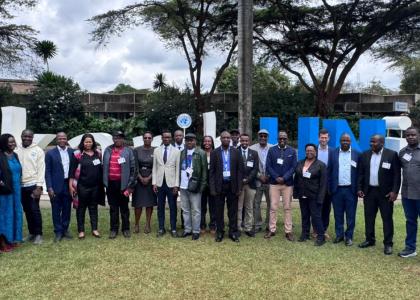As part of ECREEEs goal to be an implementing entity (IE) of the Green Climate Fund-GCF and support the mobilization of climate finance for the deployment renewable energy technologies at regional and national level, ECREEE participated in the 2nd structured Dialogue for Africa that took place at Hotel L’Amitié in Bamako, Mali from the 3 to 6th of April.
The 2nd Structured Dialogue for Africa was organised in collaboration with the Government of Mali. It convened key stakeholders – including Ministers, senior government officials, representatives of GCF National Designated Authorities (NDAs) and Focal Points, Accredited Entities, Readiness delivery partners, civil society organisations, private sector representatives, GCF Board Members, and GCF Secretariat staff – to increase the involvement of African countries with GCF and to accelerate the design and implementation of ambitious projects and programmes that speak to countries' climate action aspirations and to the GCF mandate.
ECREEE actively participated to follow-up on the accreditation rules and process of the fund and present and gain support for a regional readiness programme concept on clean energy development in the ECOWAS region. It was also a good opportunity to exchange with the ECOWAS National Designated Authorities (NDAs)/Focal points present at the meeting.
The four-day gathering provided a unique venue for Countries and Accredited Entities to share their experiences in engaging with GCF across key areas. The high level and technical sessions, as well as the bilateral meeting opportunities provided by the event, helped bridge existing knowledge gaps in respect to GCF operations; allowed countries and entities to lay down or update their programming for GCF; facilitated a structured exchange between NDAs/FPs and relevant entities on different country project pipelines; and allowed sharing of experiences in engaging with GCF across key areas.
The structured Dialogue is the 2nd series for Africa since the funds establishment. The first took place in South Africa in 2016.
Over 300 participants made up of National Designated Authorities (NDAs)/focal points from the 54 African countries Accredited Entities and delivery partners and other relevant partners and international organizations including CSOs.
During the opening session, all speakers welcomed all participants and expressed their gratitude to the leadership and government of Mali for hosting the high level meeting for Africa. Countries further noted that engaging with GCF is a bit constrained because it is hard to feel the presence of GCF in Africa considering the secretariat is far away in Songdo.
The meeting also witnessed the convening of high level delegates including His Excellency, President Ibrahim Boubacar Keïta of Mali who noted that climate change affects mostly the poor and makes them powerless. “We cannot stand by and see women and children and herds perishing”. African continent is vulnerable to climate change and Mali is most threatened and “Mali people suffer day to day to climate change impacts. The Executive Director of GCF Bamsey Howard in his speech noted that the meeting is organized to shape Africa’s road to low emission and carbon resilient development. “It is about engaging closely with key partners to have direct personal contact with Africa which is something that is difficult to manage from Korea”. He further went on to explain that since the first dialogue the fund has tripled its commitment to Africa.
The Minister of environment and sustainable development of Mali Mrs. Keita M'Bo, note that countries have challenges in accessing GCFs fund especially vulnerable countries. So the dialogue is very welcome to help West African countries share their concerns and improve the engagement with the fund specifically to enhance country programming and in sharing their view points towards sustainable development and climate resilience. She also note that the dialogue It should also deepen collaboration between countries.
The meeting also featured a detailed update of the Africa Renewable energy initiative (AREI) by the interim coordinator, Mr Seyni Nafo who noted that despite all the initiatives in the region more Africans out of the already 650 million will still lack of access to energy by 2030 and that is because of the slow rate of progress countries to harness their renewable potentials. He explained that Africa will only achieve universal access by 2068 which is too far off and so the AREI is an initiative which represents the 54 countries and its partners to change the situation.
The GCF was set up within the framework of the UNFCCC to assist developing countries in adaptation and mitigation practices to counter climate change.

